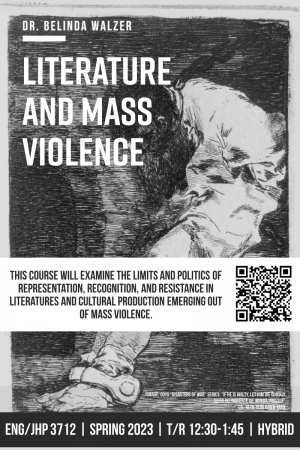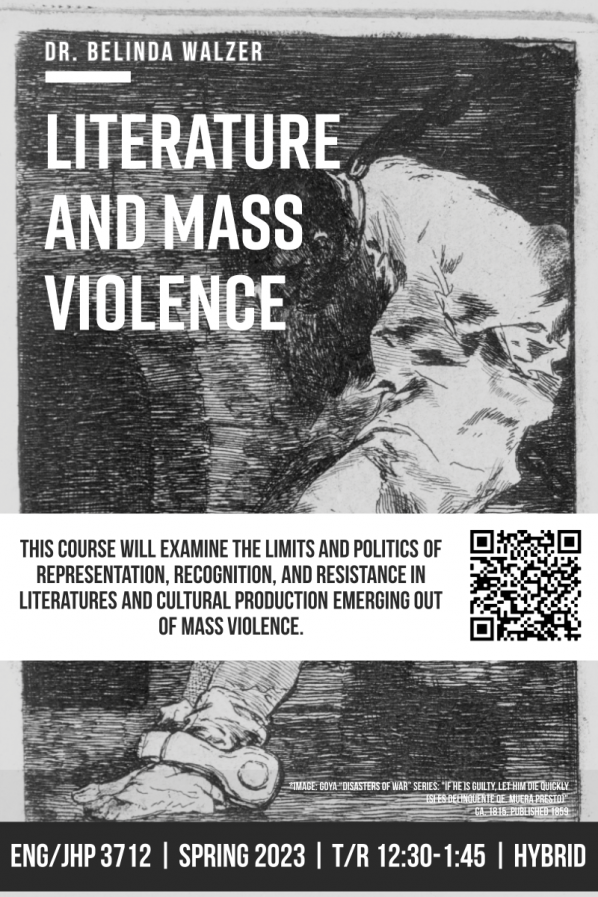From WWII to partition to contemporary state violence and climate change displacement, this course will examine literatures emerging out of and responding to mass violence. Literature and cultural production offers a way for us to engage with mass violence that acknowledges historical legacies and inherited trauma. It also gives us a way to better understand the systemic and structural frameworks that give rise to violence. This course will consider issues of violence, temporality, and visibility, including spectacular and everyday violence. We will examine the limits of representation, recognition, and resistance in multiple forms including fiction, non-fiction, graphic narrative, poetry, and visual culture. This course will address questions like: How does one ethically represent mass violence or even recognize it as an instance of mass violence, especially when that violence is ongoing and less "spectacular," like climate change, racism, and statelessness? And, how does violence underlie major historical moments such as modernity, colonialism, and globalization? What is literature's role in representing and/or resisting mass violence?
Tuesdays & Thursdays 12:30-1:45
Dr. Belinda Walzer

